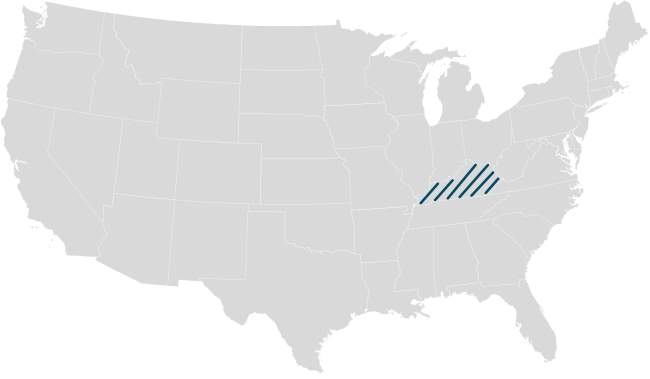BLOG
IRS Announces Tax Relief for Kentucky Taxpayers Impacted by Severe Storms

The IRS has announced that residents and business located in Boyd, Carter, Fayette, Greenup, Henry, Jefferson, Jessamine, Mason, Oldham, Union, and Whitley counties in Kentucky are eligible for extensions because of the severe storms that occurred on April 2, 2024. The tax relief pertains to deadlines that occurred from April 2nd to November 1st, 2024. As a result, businesses and residents have until November 1st to pay and file any taxes that were originally due during this period.
The tax relief pertaining specifically to a taxpayer engaged in a Internal Revenue Code Section 1031 states that "no gain or loss shall be recognized on the exchange of property held for productive use in a trade or business or for investment if such property is exchanged solely for property of like kind which is to be held for productive use in a trade or business or for investment." 1031 Exchange is as follows:
“Affected (“Exchangor" or "Exchanger") Individual or entity desiring an exchange. Taxpayer s”, those who reside or businesses whose principal place of business is in the Covered Disaster Area, are entitled to relief regardless of where the Replacement or Relinquished Properties are located. Affected (“Exchangor" or "Exchanger") Individual or entity desiring an exchange. Taxpayer s may choose either the General Postponement relief under Section 6 OR the Alternative relief under Section 17 of Rev. Proc. 2018-58. (“Exchangor" or "Exchanger") Individual or entity desiring an exchange. Taxpayer s who do not meet the definition of Affected (“Exchangor" or "Exchanger") Individual or entity desiring an exchange. Taxpayer s do not qualify for Section 6 General Postponement relief.
Option One: General Postponement under Section 6 of Rev. Proc. 2018-58 (Affected Taxpayers only). Any 45-day deadline or 180-day deadline (for either a forward or reverse exchange) that falls on or after the Disaster Date above is postponed to the General Postponement Date. The General Postponement applies regardless of the date the Those certain items of real and/or personal property described in the relinquished property contract and qualifying as “relinquished property” within the meaning of Treasury Regulations Section 1.1031(k)-1(a); The "Old Asset”, property or properties given up or conveyed by a taxpayer as part of a 1031 exchange. Relinquished Property was transferred (or the parked property acquired by the EAT) and is available to Affected Taxpayers regardless of whether their exchange began before or after the Disaster Date.
Option Two: Section 17 Alternative (Available to (1) Affected (“Exchangor" or "Exchanger") Individual or entity desiring an exchange. Taxpayer s and (2) other taxpayers who have difficulty meeting the exchange deadlines because of the disaster. See Rev. Proc. 2018-58, Section 17 for conditions constituting “difficulty”). Option Two is only available if the relinquished property was transferred (or the parked property was acquired by the EAT) on or before the Disaster Date. Any 45-day or 180-day deadline that falls on or after the Disaster Date is extended to THE LONGER OF: (1) 120 days from such deadline; OR (2) the General Postponement Date. Note the date may not be extended beyond one year or the due date (including extensions) of the tax return for the year of the disposition of the relinquished property (typically, if an extension was filed, 9/15 for corporations and partnerships and 10/15 for other taxpayers).
Visit for full details on the tax relief from the IRS.
The material in this blog is presented for informational purposes only. The information presented is not investment, legal, tax or compliance advice. Accruit performs the duties of Qualified A person acting to facilitate an exchange under section 1031 and the regulations. This person may not be the taxpayer or a disqualified person. Section 1.1031(k)-1(g)(4)(iii) requires that, for an intermediary to be a qualified intermediary, the intermediary must enter into a written "exchange" agreement with the taxpayer and, as required by the exchange agreement, acquire the relinquished property from the taxpayer, transfer the relinquished property, acquire the replacement property, and transfer the replacement property to the taxpayer. Intermediary , and as such does not offer or sell investments or provide investment, legal, or tax advice.

